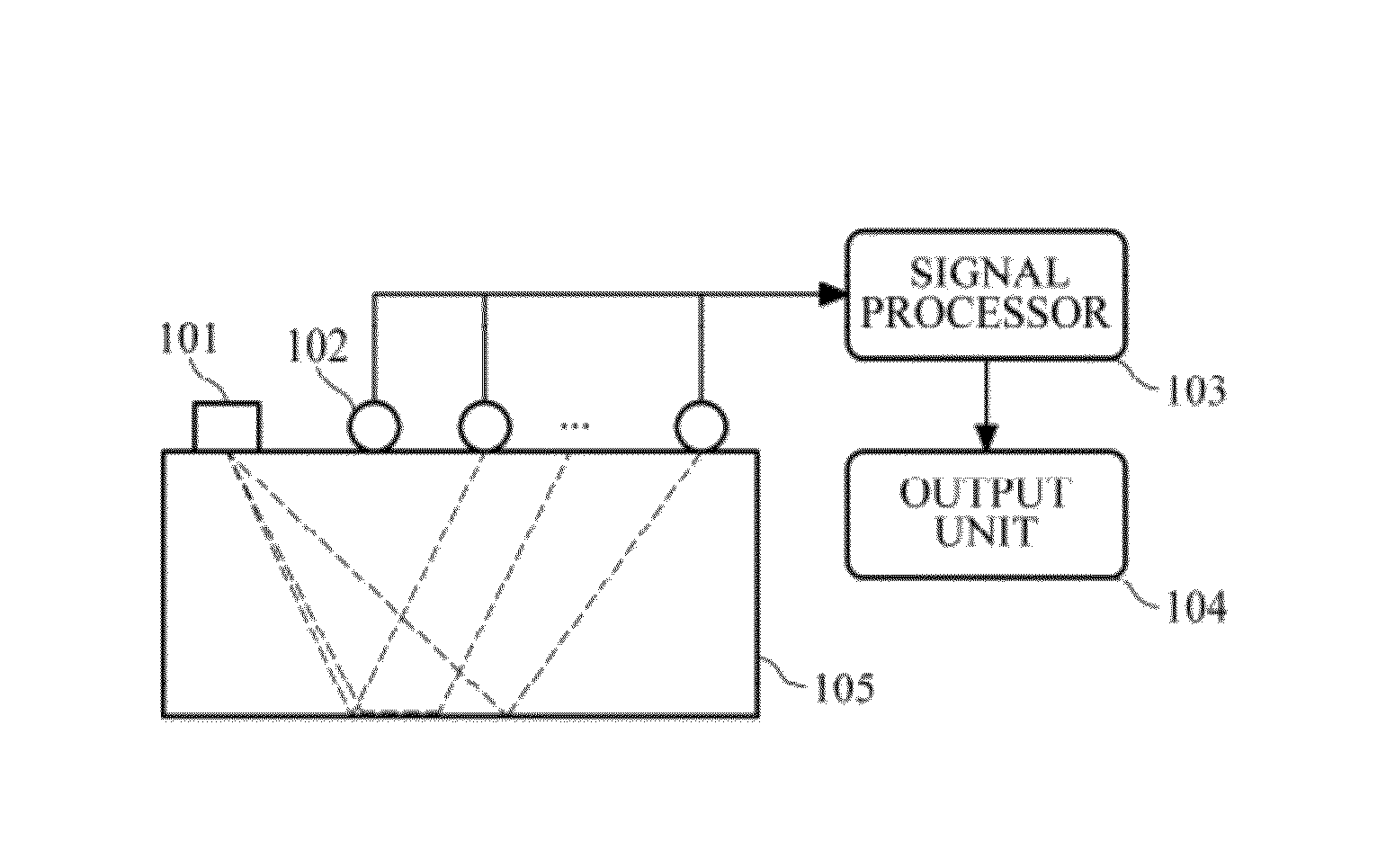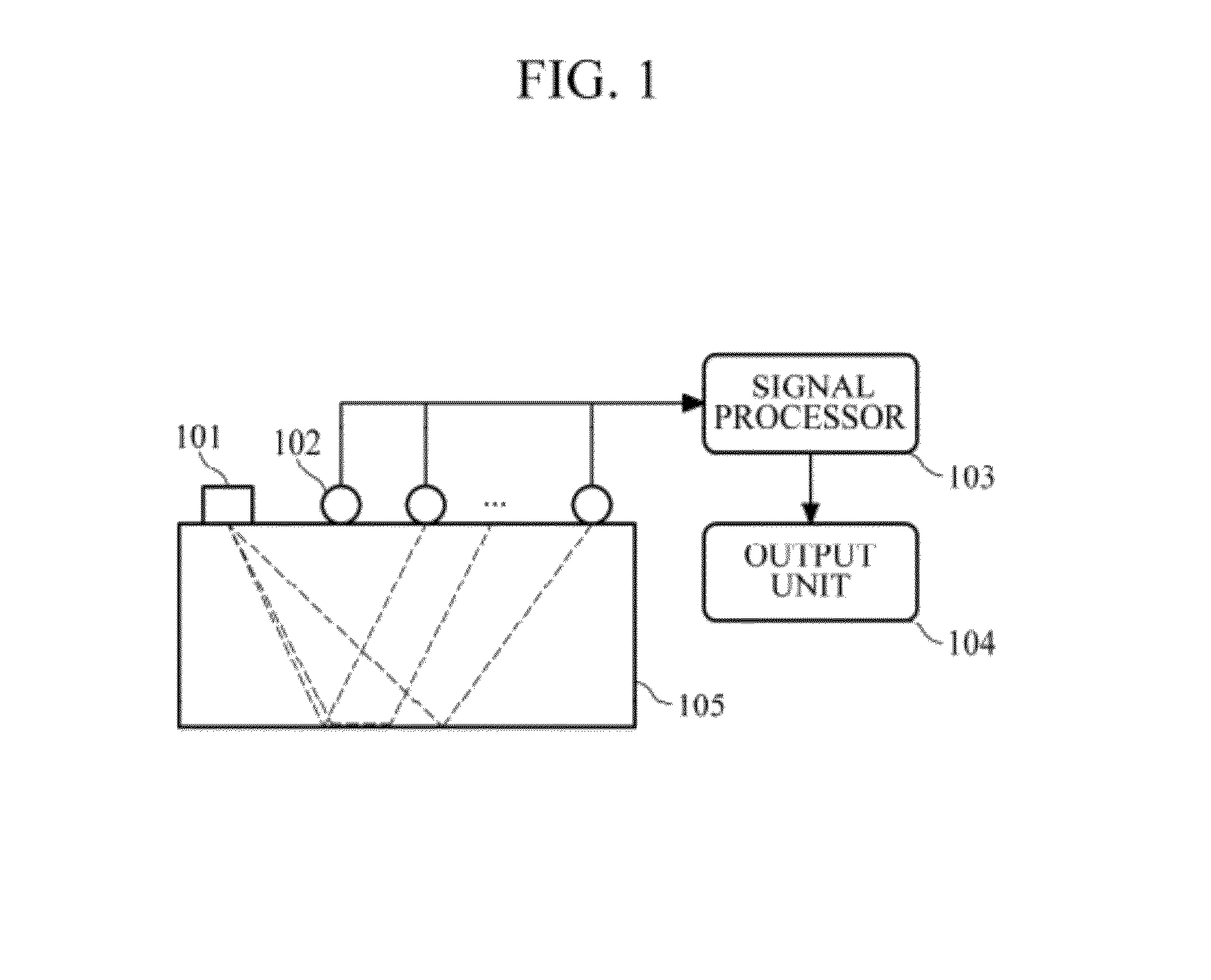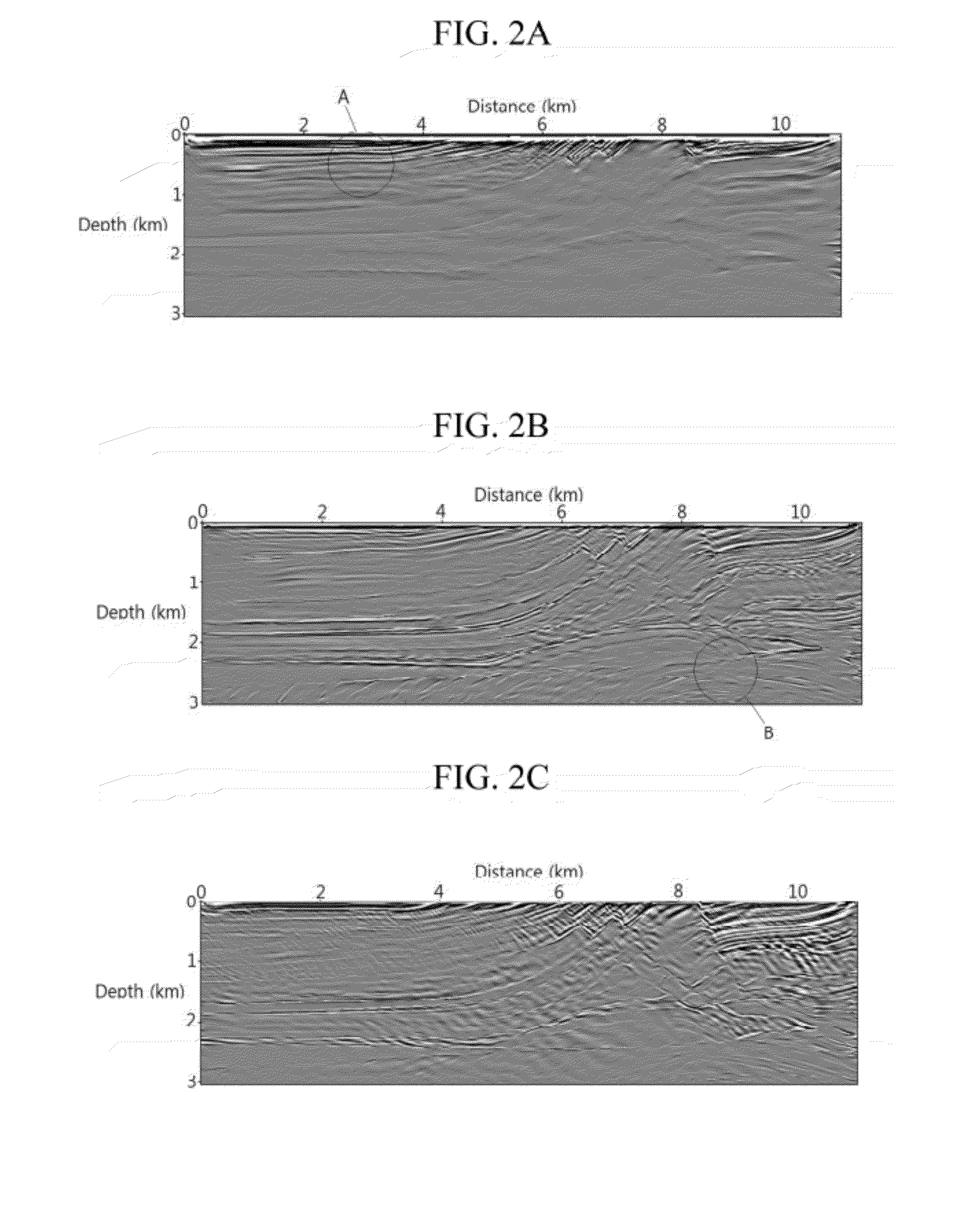Apparatus and method for imaging a subsurface using frequency-domain elastic reverse-time migration
- Summary
- Abstract
- Description
- Claims
- Application Information
AI Technical Summary
Benefits of technology
Problems solved by technology
Method used
Image
Examples
Embodiment Construction
[0021]The following description is provided to assist the reader in gaining a comprehensive understanding of the methods, apparatuses, and / or systems described herein. Accordingly, various changes, modifications, and equivalents of the methods, apparatuses, and / or systems described herein will be suggested to those of ordinary skill in the art. Also, descriptions of well-known functions and constructions may be omitted for increased clarity and conciseness.
[0022]FIG. 1 is a diagram illustrating an example of a subsurface imaging apparatus using frequency-domain reverse-time migration in elastic medium. Referring to FIG. 1, the subsurface imaging apparatus may include a source 101, a receiver 102, a signal processor 103, and an output unit 104.
[0023]The source 101 is used to generate waves (source wavelets) toward a region 105 to be observed. The kind of the source 101 is not limited, and may be a dynamite, an electric vibrator, etc. The source 101 may use well-known waves or arbitra...
PUM
 Login to View More
Login to View More Abstract
Description
Claims
Application Information
 Login to View More
Login to View More - R&D
- Intellectual Property
- Life Sciences
- Materials
- Tech Scout
- Unparalleled Data Quality
- Higher Quality Content
- 60% Fewer Hallucinations
Browse by: Latest US Patents, China's latest patents, Technical Efficacy Thesaurus, Application Domain, Technology Topic, Popular Technical Reports.
© 2025 PatSnap. All rights reserved.Legal|Privacy policy|Modern Slavery Act Transparency Statement|Sitemap|About US| Contact US: help@patsnap.com



